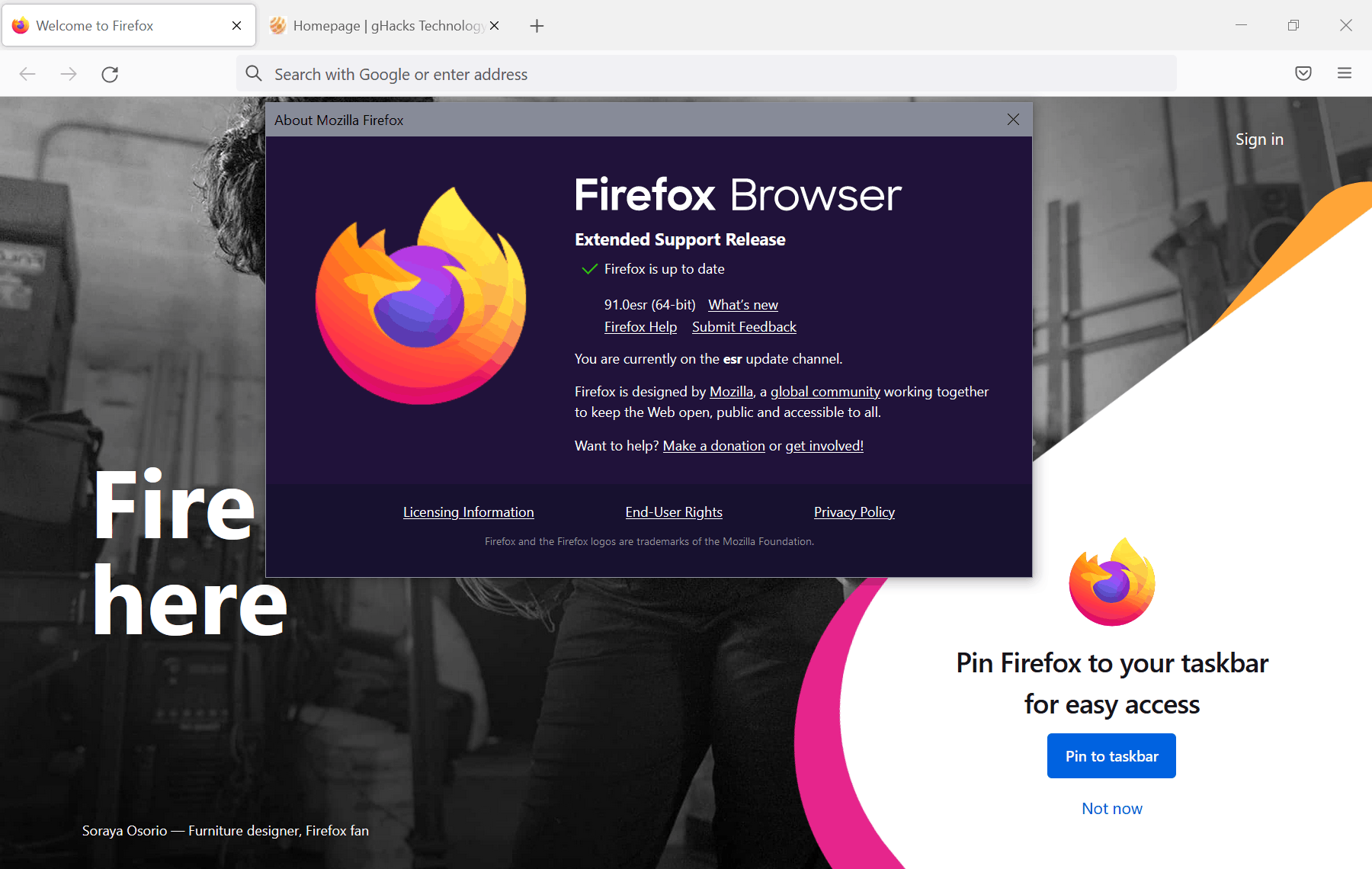Most web browsers are available in different editions, which can be loosely divided into stable and development groups. Firefox, for example, is offered as Firefox Stable and Firefox ESR, as well as Firefox Beta, Developer and Nightly.

Google Chrome, the most popular desktop browser, is offered as a stable version and extended stable version, as well as Beta, Developer and Canary editions. The same is true for many other browsers.
Extended support releases are designed for organizations mainly. Their main purpose is to provide a stable platform that does not change too often.
When you look at the differences between extended support versions of browsers, you will notice that the support period differs significantly. Firefox's ESR version is supported for about a year before it is upgraded to a new base. Firefox 91 ESR was released in August 2021, and it will be supported until August 2022. Google Chrome's Extended Stable channel on the other hand is supported for two months only before it is updated.
While it is often easy to pick one of the groups, it may not be that easy to decided between regular stable versions and extended stable versions, or between one of the available development editions.
A core difference between regular and extended support releases is that new features get added more quickly to regular stable releases. Extended support releases get security and bug fix updates, but most feature additions or improvements are not added until a new base version is released; this affects changes as well, e.g., changes to the extensions system, support for technologies, or interface changes.
While that means that new features can't be used immediately, it does means that extended versions of browsers are usually more stable than the regular stable versions.
Firefox's ESR version is the prime example of that. Install a new base ESR version and you can be sure that it behaves and looks identical in the coming year. The move to a new base version may be disruptive, as changes of an entire year will be introduced in a single release, but these changes happen once per year only and not more frequently.
Regular stable versions change more frequently, and since most browser makers release a new version each month, it can be time consuming to restore functionality or interface changes. Extended support releases require less adjusting and less work than regular stable releases, which frees up time.
When it comes to ESR versions of different browsers, it is Firefox that takes the crown. Its ESR versions are supported for a year each. That's six times the period that Google supports Chrome's extended stable releases.
In short: if you want your browser to be as stable as possible and with the least amount of changes, extended support versions are the way to go. If you want the latest technologies support immediately, then it is the regular stable versions, or even development versions that you may want to use.
Now You: ESR or not, which do you prefer, and why?
Thank you for being a Ghacks reader. The post Opinion: if you want peace of mind, run Extended Support editions of browsers appeared first on gHacks Technology News.


0 Commentaires